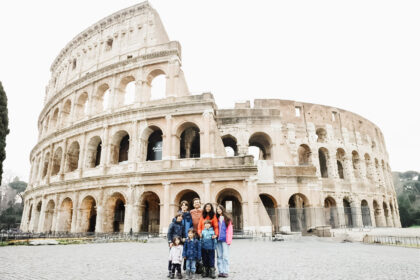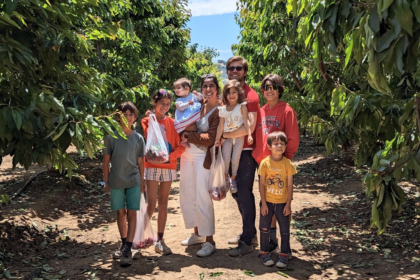I don’t often discuss my faith on this blog, but it is incredibly important in my life. In our church, I teach a lesson to the women’s group once a month. I was originally scheduled for last week, but we were out of town and I asked to switch, but keep the same lesson. That meant that yesterday’s topic was forgiveness.
I’m obviously not the parent of one of those dear children. I haven’t lost a child or sibling or friend. I didn’t know that young man or his family or their grief. Yet I believe the timing of this lesson was a tender mercy from a loving Father in Heaven to remind those in our little community of some important blessings we can enjoy, especially during this Christmas season, because of the birth of a babe in Bethlehem.
I’m grateful I could prepare a special program on Christmas and forgiveness, even if I was by no means one of the most affected. If you’ve been feeling the melancholy of the last few days as I have, I hope the below messages can provide comfort and peace to you as they have to me.
*********************************************************************
would like to recount a story told by Kenneth J. Brown, who was serving as a
U.S. Marine in Japan following the dropping of the bomb. His moving story about
a Japanese Christian he met at Christmastime in Nagasaki is as follows.
leading to our shelter. He was groping, hesitating. As he came near he folded
his umbrella and stood quietly a long moment. His thin coat soon dampened from
the cold rain that was falling from the same sky that had brought death to
nearly half his townspeople three short months before. I concluded that it must
take some special courage to confront one’s conquerors without invitation. It
was little wonder that he hesitated.
squared shoulders and lifted head let me feel as if I were looking up at him
even … though I towered over him a foot or more. I recall being disturbed that
I hadn’t yet become used to the near sightless eyes of those who had looked
heavenward that morning when the bomb dropped. …
clear English] he introduced himself as Professor Iida. …
minister’s office. Are you a Christian? It is good to talk with a follower of Christ; there are so few Christian Japanese.’
waited while the two men conversed. Professor Iida stated his request briefly.
He was a teacher of music in a Christian girls’ college until it was closed by
imperial command. … He had been imprisoned because of his professed
Christianity. After being released he had returned to Nagasaki and continued his
music instruction in his home even though it was forbidden. He had been able to
continue a small chorus and would be pleased if … they [could] sing a concert
for the American Marines.
‘We should like to do something to make your Christmas in Japan more
enjoyable.’
unit was one of hardened fighters, four years away from home, who had fought
the enemy from Saipan to Iwo Jima. … Yet there was something about the man that
bespoke sincere desire to do a good deed so that … permission was granted. The
concert would be Christmas Eve.
bowl reminiscent of the calm that night long ago. The concert was well
attended; there was nothing else to do. The theater … had been cleared of its
fallen roof and men were sitting on the jagged walls. The usual momentary hush
fell over the audience as the performers filed on stage. …
English and we became aware that they didn’t understand the words but had
memorized them for our benefit. Professor Iida had taught his students well;
they sang beautifully. We sat enthralled as if a choir from heaven were singing
for us. … It was as if Christ were being born anew that night.
The girl sang with all the conviction of one who knew that Jesus was indeed the
Savior of mankind and it brought tears. After that there was a full minute of
silence followed by sustained applause as the small group took bow after bow.
trimmings. I could not resist asking some questions that propriety forbade but
curiosity demanded. I just had to know.
unoffended at my recalling his grief so that I felt I could ask more.
orphans.’
the way she sang.’
sing well; I am so proud of her. She is my daughter.’ …
that day I knew that Christianity had not failed in spite of people’s
unwillingness to live His teachings. I had seen hatred give way to service,
pain to rejoicing, sorrow to forgiveness. This was possible because a
babe had been born in a manger [and] later taught love of God and fellowmen. We
had caused them the greatest grief and yet we were their Christian brothers and
as such they were willing to forget their grief and unite with us in singing
‘Peace on earth, goodwill to all men.’
stilled, ‘Surely he hath borne our griefs, and carried our sorrows.’ They seemed
to echo and re-echo over the half-dead city that day.
“That day
also I knew that there was a greater power on earth than the atomic bomb.”
Their old familiar carols play,
And wild and sweet the words repeat
Of peace on earth, good will to men.
I thought how, as the day had come,
The belfries of all Christendom
Had rolled along the unbroken song
Of peace on earth, good will to men.
And in despair I bowed my head:
“There is no peace on earth,” I said,
“For hate is strong and mocks the song
Of peace on earth, good will to men.”
Then pealed the bells more loud and deep:
“God is not dead, nor doth he sleep;
The wrong shall fail, the right prevail,
With peace on earth, good will to men.”
Till, ringing singing, on its way,
The world revolved from night to day,
A voice, a chime, a chant sublime,
Of peace on earth, good will to men!
certainly the most needed. There is so much of meanness and abuse, of
intolerance and hatred. There is so great a need for repentance and
forgiveness. It is the great principle emphasized in all of scripture, both
ancient and modern. Somehow forgiveness, with love and tolerance, accomplishes
miracles that can happen in no other way.”
when they were come to the place, which is called Calvary, there they crucified
him…Then said Jesus, Father, forgive them; for they know not what they do.”
33-34)
living in the Portland, Oregon, area, an urgent call came from a valued friend who
had been bedfast for nearly a year.
Now his condition was critical.
doctor had informed him earlier that afternoon that his life was nearing its
end and that it was now only a matter of a day or two, or perhaps a week at the
most, until he would expire. Then
he remarked: “The strange thing about this whole matter is that the doctors
still do not know what is wrong with me.
They just know that I am dying.
Tonight I just felt that I wanted to visit with you before I prepare to
meet my Maker.”
conversation, I received a divine insight real problem was. “Brother,” I responded, “I believe I
know what is wrong.” He seemed
startled, but genuinely interested, as he urged, “Please tell me.”
of very serious hurts and disappointments in your life,” I said, “that have
filled you with bitter resentment.
Many of these have never been resolved.” He seemed incredulous and somewhat apprehensive as he
inquired, “What do you know about them?”
replied, “unless you tell me about them.
I only perceive that you have been deeply hurt many times. Yet you have never forgiven those who
were responsible for these offences.”
he countered, “that I have had some pretty bitter experiences. But since I accepted the gospel, I
believe that I could forgive those who were responsible if they asked for my
forgiveness.”
the principle of forgiveness works,” I said. “When any serious grievance takes place, the Lord requires
us to forgive the guilty party the moment the infraction occurs, if possible.”
an experience that was conducted [at the rattlesnake farm near Salem, Oregon],”
I said. One of the caretakers took
one of his large rattlesnakes and put a forked stick behind its head so it
could not coil to strike. Then he
began to tantalize it with small chicks and other food. The snake kept trying to coil
unsuccessfully, and venom dripped quite freely from its fangs. Within minutes the snake stiffened and
died. The caretaker then
commented that a rattlesnake can stand just about anything except its own
venom. When it cannot discharge the venom as fast as it is produced, it
dies of its own accumulated poison.”
Then I
suggested to my friend that his own condition somewhat paralleled that of the
snake: “When you have any resentment, hurt, bitterness, or hatred in your
heart, regardless of the cause, if you do not get rid of it at once through the
spirit of forgiveness, the hatred will continue to fester and grow and
increase, since that is the basic Law of the Harvest. Unless contained,
these negative feelings will finally consume and destroy the person who harbors
them. This is what has been troubling you and what, even now, has brought
you to the point of death.
My friend
began to sob unashamedly. In the process he removed his nightshirt and
showed me his bare back. I had never seen a back like this, not even in
the concentration camps of Europe. Across his back were large
crisscrossed scars that were scabbed over with ugly flesh. Some of them
were so deep a person could almost lay his arm in them.
Then he
related to me how his father used to come home occasionally in a mean,
drunken stupor. His temper would flare up and he would take a heavy whip
from the wall and flog whoever was within reach. This whip, a “cat o’
nine tails,” was leather with several strands. At the end of each strand
was fastened a large brass ball with metal spikes that could tear the hid off
an animal.
On one
occasion my friend was the victim. Just fourteen years old at the time he was whipped into unconsciousness. How long he lay on the floor he did not know, but as he regained
consciousness, he found himself lying in a pool of his own blood, with his back
fairly torn to shreds. He managed somehow to crawl from his house and he
vowed he would never return.
At this
point I interrupted, “You’ve kept that promise, haven’t you?”
“Yes,” he
replied.
“You’ve
Never forgiven your father for that flogging, have you?” I next inquired.
“No, I
guess not,” was his reply. “But if dad
were to ask for forgiveness, I think I could forgive him now.”
“I’m
concerned,” I said, “that you still don’t understand the underlying principle.
You have had the divine responsibility of forgiving your father from the
moment that you regained consciousness, so that the healing power of
forgiveness could come into your own life and relieve you of this terrible burden.
In doing so, you might also have started the process of healing for your
father as well. But because you have continued to nurture this
resentment, it has festered and grown until it is literally consuming you.
In addition, I feel you still have a number of other resentments against
others that likewise have never been resolved. These are adding to your
burden and hastening your untimely death.”
My friend
then recalled numerous other cases throughout Canada, Montana and the Pacific
Northwest, none of which had been resolved.
“Where
does your father live?” I asked next.
“The last
I knew, he was living in North Dakota,” my friend responded. “I haven’t
seen him or been in touch with him for over forty years.”
When we
finished talking, I invited him to sit
upon a chair so I could give him a special blessing and outline for him what
must be done. In the blessing he was instructed to get out of bed the
following morning, take his wife, and drive to his father’s home in North Dakota,
with the assurance that his father was still alive. He was also to drive
to the homes of all the other people against whom he had resentments, no matter
where they lived.
“In each case he was to ask for their forgiveness
for having harbored resentments against them. “Don’t go there and try to
persuade them to beg for your forgiveness,” I admonished. “Rather, your assignment
is to ask their forgiveness for your having failed to make a reconciliation
these many years.” The blessing outlined how he was to ask for such
forgiveness. In addition, I blessed him with the necessary strength to
accomplish this task successfully.
About four or five weeks later my friend stopped his
car in our driveway. As he stepped of his car, I greeted him with,
“Brother, you’re a well man now, aren’t you?”
“Yes,” he responded, “I haven’t felt this good in
many years.”
He then
began to relate to me his experiences. He told me about his aged father,
who was now in his eighties and nearly blind. When his father came to the
door, he inquired in his usual gruff manner, “Who are you?”
My friend
informed him that he was his son. Still rather brusquely, his father
responded, “Well, what do you want now?”
My friend
answered: “Dad, I have come home to ask for your forgiveness. For years I
have held a bitter resentment against you for what you did to me when I was a
young man. I had no right to feel resentment toward you. Can you
forgive me for holding a grudge all these years?”
He said
that his father looked stunned for a moment. Then he broke down and cried,
threw his arms around his son, and sobbed, “Son, I’m the one who should have
asked for your forgiveness, but I didn’t have the courage. Can you
forgive me?”
Then my
friend added: “You know, we made a complete reconciliation. The
spirit of peace and forgiveness flooded both of our lives. I had a
similar experience in every home I visited, as you directed me to do in my
blessing. Today I am a happy, healthy man. I’m at peace with myself
and with my Lord.”
“Within
six months, my friend was the third-highest sales producer for the large life
insurance company he represented. Just before Christmas he and his wife
were called to go on a special mission to New Zealand. More than thirty
years later, as far as I am aware, he is still very much alive, enjoying life
and serving his fellow man.”
Him that Believeth)
Let thy head most humbly bow.
Think of me, thou ransomed one;
Think what I for thee have done.
With my blood that dripped like rain,
Sweat in agony of pain,
With my body on the tree
I have ransomed even thee.
In this bread now blest for thee,
Emblem of my body see;
In this water or this wine,
Emblem of my blood divine.
Oh, remember what was done
That the sinner might be won.
On the cross of Calvary
I have suffered death for thee.
Bid thine heart all strife to cease;
With thy brethren be at peace.
Oh, forgive as thou wouldst be
E’en forgiven now by me.
In the solemn faith of prayer
Cast upon me all thy care,
And my Spirit’s grace shall be
Like a fountain unto thee.
At the throne I intercede;
For thee ever do I plead.
I have loved thee as thy friend,
With a love that cannot end.
Be obedient, I implore,
Prayerful, watchful evermore,
And be constant unto me,
That thy Savior I may be.
season, for all of us to rededicate ourselves to the principles taught by Jesus
Christ.
He came to earth, we have a perfect example to follow. As we strive to become
more like Him, we will have joy and happiness in our lives and peace each day
of the year. It is His example which, if followed, stirs within us more
kindness and love, more respect and concern for others.
Because He came, there is meaning to our mortal existence.
Because He came, we know how to reach out to those in trouble or distress,
wherever they may be.
Because He came, death has lost its sting, the grave its victory. We will live
again because He came.
Because He came and paid for our sins, we have the opportunity to gain eternal
life.
Because He came, we are gathered tonight to worship Him, in bonds of
brotherhood and love.
Silent night! Holy night!
Silent night! Holy night!











Beautiful post. Thank you for the great reminder, especially at a time when it is so relevant.
Your post is inspired, for so many reasons. Thank you Preethi.